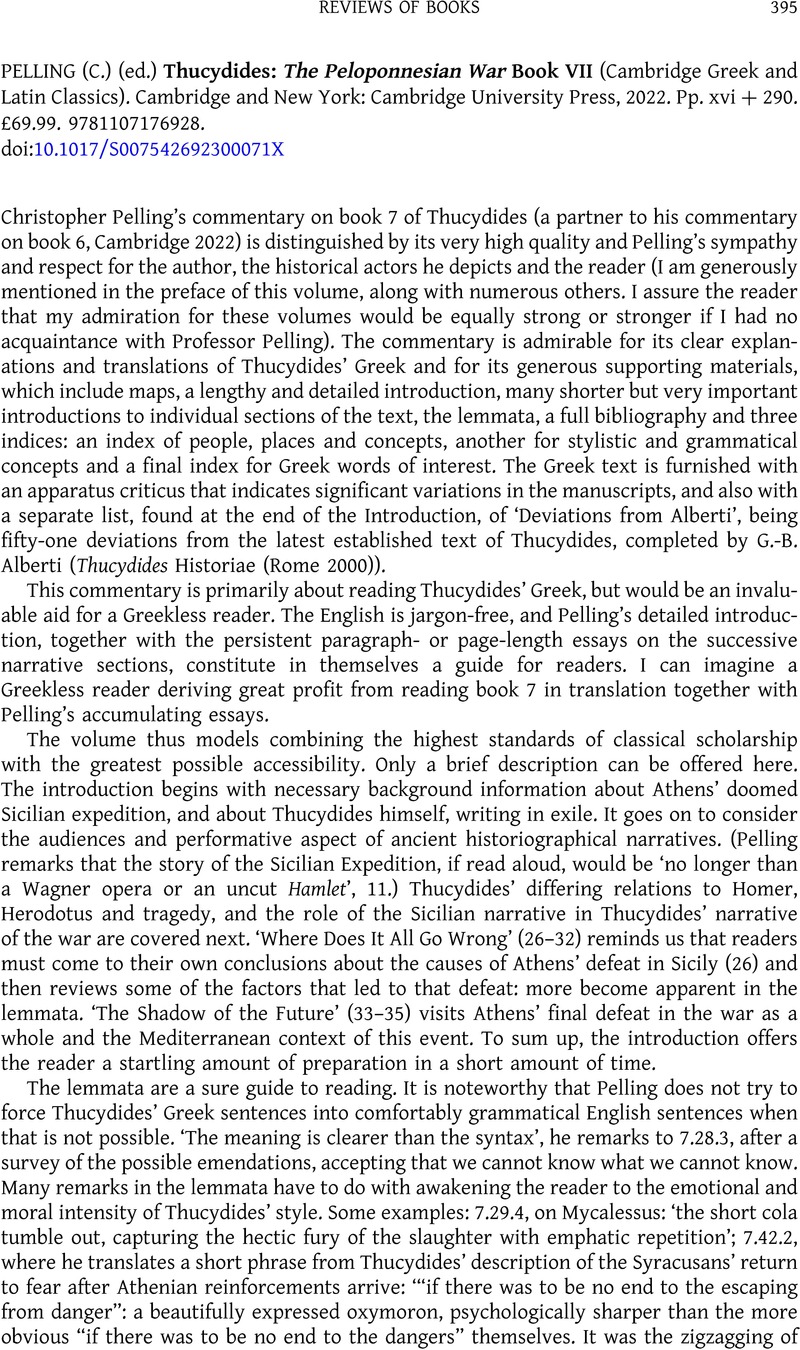No CrossRef data available.
Article contents
(C.) PELLING (ed.) Thucydides: The Peloponnesian War Book VII (Cambridge Greek and Latin Classics). Cambridge and New York: Cambridge University Press, 2022. Pp. xvi + 290. £69.99. 9781107176928.
Review products
Published online by Cambridge University Press: 12 October 2023
Abstract

- Type
- Reviews of Books: Literature
- Information
- Copyright
- © The Author(s), 2023. Published by Cambridge University Press on behalf of the Society for the Promotion of Hellenic Studies


